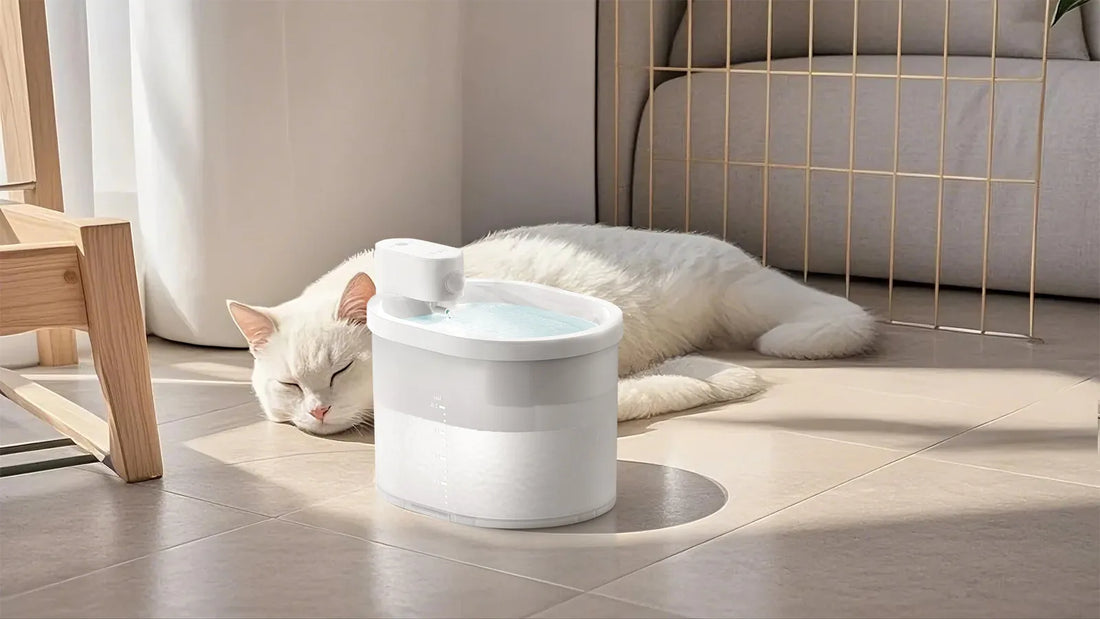Keeping your dog clean is more than just a matter of aesthetics; it's essential for their health and well-being. A clean dog is a happy dog, and a happy dog makes for a happy owner. In this guide, we'll explore everything you need to know to keep your pet spotless and healthy.
Why Cleanliness Matters for Dogs
Maintaining your dog's cleanliness is crucial for several reasons. First and foremost, it helps prevent skin infections and other health issues. Dirt, debris, and parasites can easily accumulate on your dog's coat, leading to irritation and disease. Regular grooming and cleaning can help mitigate these risks.
Additionally, a clean dog is more pleasant to be around. No one enjoys the smell of a dirty dog, and keeping your pet clean ensures that your home remains fresh and odor-free. Cleanliness also plays a role in your dog's social interactions; a well-groomed dog is more likely to be welcomed by other pets and people.
Essential Grooming Tools
To keep your dog clean, you'll need the right tools. Here are some essentials:
- Brushes and Combs: Different breeds require different types of brushes. A slicker brush is great for removing tangles, while a bristle brush is ideal for smooth coats.
- Shampoo and Conditioner: Choose products specifically formulated for dogs. Human shampoos can be too harsh for their skin.
- Nail Clippers: Regular nail trimming is essential to prevent overgrowth and splitting.
- Ear Cleaner: Keep your dog's ears clean to prevent infections.
- Toothbrush and Toothpaste: Dental hygiene is just as important for dogs as it is for humans.
Step-by-Step Grooming Routine
Establishing a regular grooming routine is key to keeping your dog clean. Here's a step-by-step guide:
- Brushing: Start by brushing your dog's coat to remove any tangles and loose hair. This also helps distribute natural oils, keeping the coat healthy.
- Bathing: Use lukewarm water and a dog-specific shampoo. Be sure to rinse thoroughly to avoid any residue that could irritate the skin.
- Drying: Towel dry your dog and use a hairdryer on a low setting if necessary. Make sure your dog is completely dry to prevent skin issues.
- Nail Trimming: Carefully trim your dog's nails, avoiding the quick. If you're unsure, consult a professional groomer.
- Ear Cleaning: Use a dog-specific ear cleaner and a cotton ball to gently clean the ears.
- Teeth Brushing: Brush your dog's teeth with a toothbrush and toothpaste designed for dogs. This helps prevent dental diseases.
Dealing with Common Cleaning Challenges
Every dog owner faces cleaning challenges from time to time. Here are some common issues and how to address them:
Odor Control
If your dog has a persistent odor, it could be due to a variety of factors, including skin infections, dental issues, or anal gland problems. Regular grooming and veterinary check-ups can help identify and address the root cause.
Shedding
Shedding is a natural process, but it can be managed with regular brushing and a healthy diet. Some breeds shed more than others, so choose a dog that fits your lifestyle and tolerance for hair.
Stains and Spots
Accidents happen, and when they do, it's important to clean them up promptly. Use a pet-safe cleaner to remove stains and odors from carpets and upholstery.
Creating a Clean Environment
Keeping your dog clean also involves maintaining a clean environment. Here are some tips:
- Regular Cleaning: Vacuum and mop your floors regularly to remove pet hair and dander.
- Wash Bedding: Your dog's bedding should be washed weekly to prevent the buildup of dirt and bacteria.
- Clean Toys: Wash your dog's toys regularly to keep them free of germs.
- Outdoor Maintenance: Keep your yard clean by picking up after your dog and regularly cleaning their outdoor play area.
Professional Grooming Services
While regular at-home grooming is essential, professional grooming services can provide additional benefits. Professional groomers have the tools and expertise to handle more challenging tasks, such as de-shedding treatments and breed-specific cuts. They can also identify potential health issues that may not be immediately apparent to the untrained eye.
Health Benefits of a Clean Dog
A clean dog is a healthy dog. Regular grooming and cleaning can help prevent a variety of health issues, including:
- Skin Infections: Regular bathing and brushing help remove dirt and parasites that can cause skin infections.
- Dental Diseases: Brushing your dog's teeth regularly can prevent periodontal disease and other dental issues.
- Ear Infections: Keeping your dog's ears clean helps prevent infections caused by bacteria and yeast.
- Parasites: Regular grooming helps you spot and remove ticks, fleas, and other parasites before they become a problem.
Tips for Keeping Your Dog Clean Between Baths
Bathing your dog too frequently can strip their coat of natural oils, so it's important to find a balance. Here are some tips for keeping your dog clean between baths:
- Use Dry Shampoo: Dry shampoo can help absorb oils and odors without the need for water.
- Wipe Down: Use a damp cloth to wipe down your dog's coat and paws after outdoor activities.
- Brush Regularly: Regular brushing helps remove dirt and debris from your dog's coat.
- Keep Paws Clean: Wipe your dog's paws after walks to remove dirt and prevent tracking it into your home.
Conclusion
Keeping your dog clean is an essential part of responsible pet ownership. With the right tools, routine, and a little bit of effort, you can ensure that your furry friend stays healthy, happy, and odor-free. Remember, a clean dog is not just a reflection of your care but also a testament to the bond you share with your pet.
Ready to transform your dog's hygiene routine? Start today and experience the joy of a clean, happy dog. Your pet will thank you, and so will your nose!













